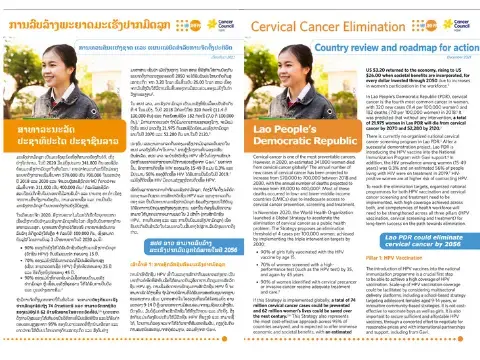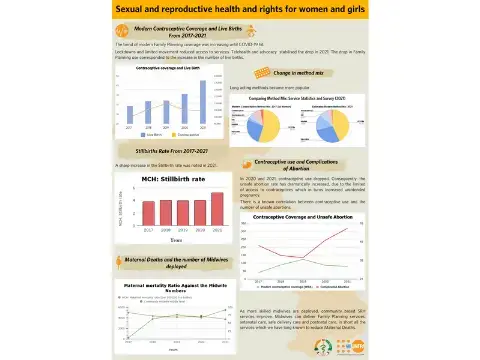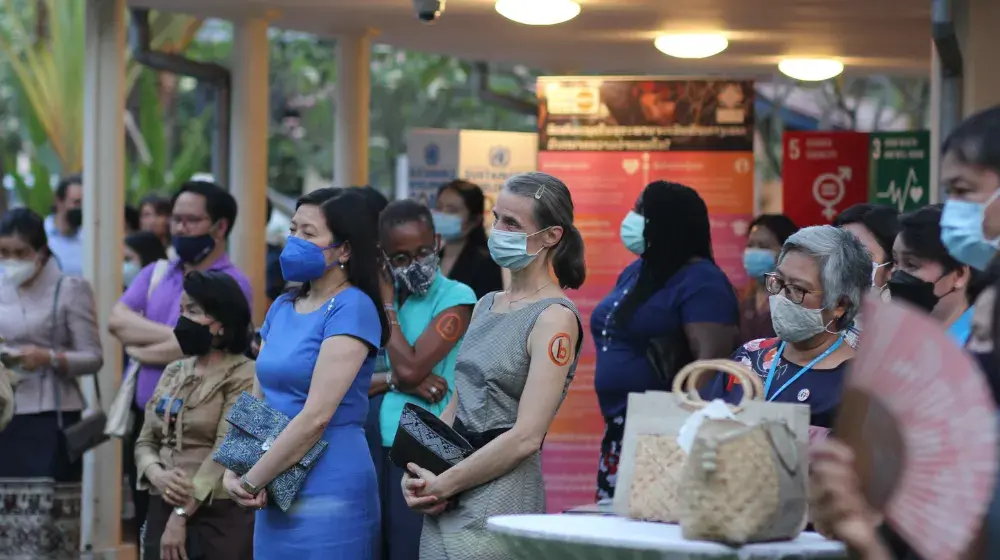Mr Khamsai Sanasom, is 47 years old and lives in Huayhiey Village with his wife and two children. He is the village chief in his district and his story is a lesson of inspiration to support village wellbeing.
In the past, I lost two children. I saw my babies dying. It is awful to experience the death of your beloved ones. My life was full of sadness because of these events. I couldn’t understand why it happened to them.. I got married very young and my wife too was still adolescent. She got pregnant quickly and kept repeating pregnancies each time we lost a baby. We were ignorant of the maternal health services, how to follow up with midwives, or even back then there weren’t midwives in our village, not to mention the poor food and malnutrition. I wasn’t aware of the consequences of early pregnancies.
When we started to see programs being implemented in our village, with midwives spreading information on maternal health and adolescents wellbeing, I understood why my children died right after they were born. I wished I could see these programs before to save my children. Then I looked around and told myself: “for my babies it is too late, but what if I play a role in saving lives of other babies and protecting young girls”
As a village chief, I can help others in my village avoid the same problem and grief. I am engaged in the maternal health programs run by the Ministry of Health, UNFPA and their partners. I talk to adolescents and their parents to delay having children at least until they reach 18. I’ve always been encouraging them to finish school as it brings opportunities for the future and income to eradicate poverty in the community, and I support midwives to track pregnant women as well as encouraging them to deliver at the clinic.
The village authorities who collaborate in the Ministry of Health as influencers, play a critical role in implementing village health programs to:
- Facilitate men's understanding of women’s health and support the empowerment of women to make decisions regarding their health.
- Fight harmful practices that expose pregnant women and newborns to risks.
- Help midwives track the pregnant women in the village, know how many they are, how to reach them. Village chiefs through tele-health can connect pregnant women to midwives when they miss antenatal care for example.
- In one of the UNFPA supported programs, thanks to the intervention of the engaged village authorities, a baby at risk of dehydration was saved when the village chief provided timely transportation from the village to the health facility. Raise awareness of the local population on the different aspects of maternal health including adolescents rights. In UNFPA programs with the Ministry of Education, village chiefs encourage parents to let girls continue school, to attend nang noi girls groups where they learn life skills and gain confidence.
- Introducing new initiatives such as telehealth which was started as a response to COVID -19 in Lao PDR by the Ministry of Health and UNFPA, village chiefs played a vital role as mediators so that women approach midwives to address their concerns during the pregnancy. This helped in many times, reduce the time women spend before they get checked and also combated the obstacle of distance for women in remote areas where midwives are not present.
To support Lao PDR government into achieving its commitments to ICPD25 aiming to end maternal mortality and fighting harmful practices, UNFPA mobilizes expertise and partners (MOH, KOFIH, MHTF, UNFPA Supplies programme , TICA, Luxembourg , LWU, UK, Australia , KOICA, SDC) to support family planning and gender equality programs. Those programs aim to secure a qualified task force of midwives, empowerment of adolescent girls by ending child marriage and involvement of men and village chiefs as full actors with the power to influence the social norms and combat risky behaviors.
For more information please contact:
Miss Phetmany Viyadeth,
National Communication Consultant UNFPA Lao PDR
Email: viyadeth@unfpa.org
************
UNFPA, the UN's sexual and reproductive health agency, works in over 150 countries including Lao PDR, to achieve zero maternal deaths, zero unmet need for family planning and zero gender-based





